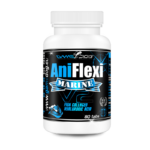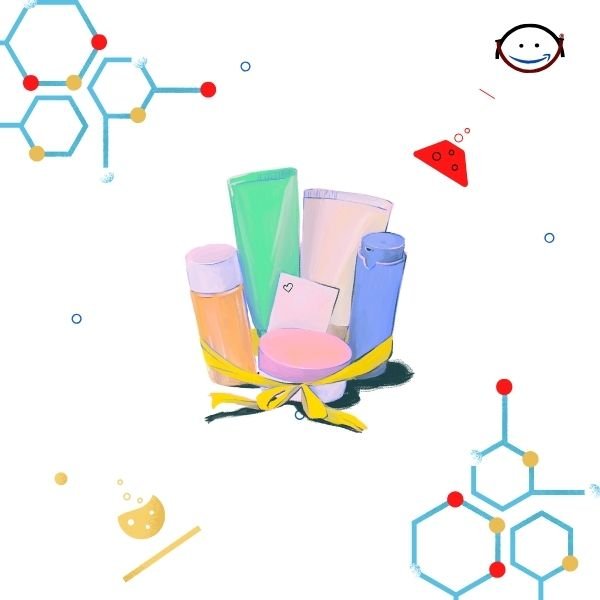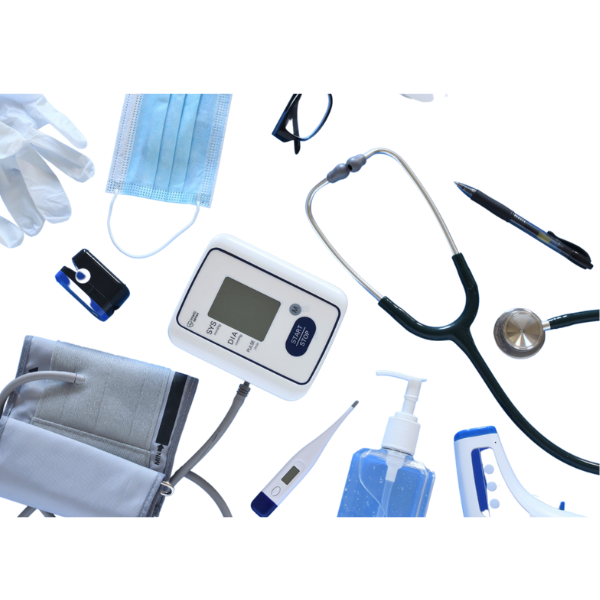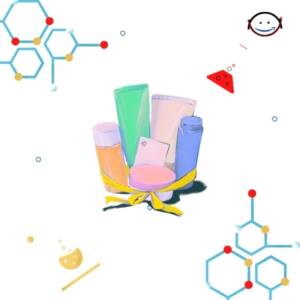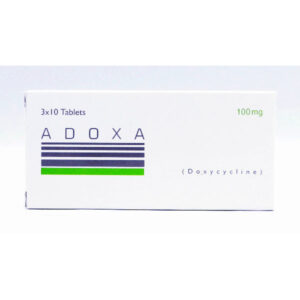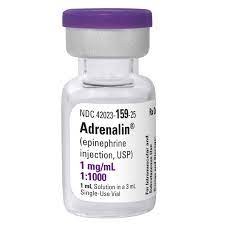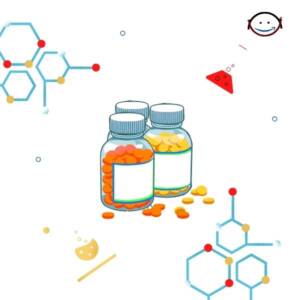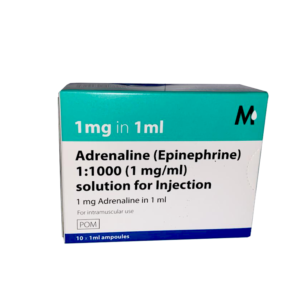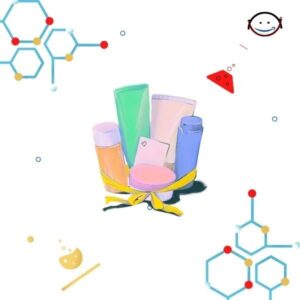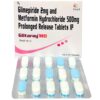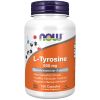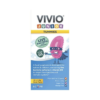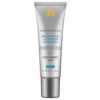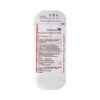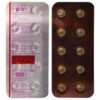-
GLITARAY M 2MG TAB 15`S ₦3,460.75 QTY: 1
-
Flower Model ₦34,533.00 QTY: 1
-
ARGIPRIME 6GM GRANULES (NUTRACEUTICAL) ₦887.00 QTY: 1
-
CEFXTRUE 100MG STRIP OF 10 TABLETS ₦1,443.75 QTY: 1
-
Now L-Tyrosine 500 mg, 120 Capsules ₦46,800.00 QTY: 1
-
Vivio Junior Tummies - 10 x 1.6g ₦20,300.00 QTY: 1
-
SkinCeuticals Brightening UV Defense SPF30 30ml ₦101,072.60 QTY: 1
-
Klorane Extra Gentle Dry Shampoo For All Hair types ₦35,545.48 QTY: 1
-
ATOCOR 10MG TAB 14`S ₦1,664.25 QTY: 1
-
Vichy Nutrilogie 1 Intense Day Cream for Dry Skin ₦45,555.56 QTY: 1
-
EVATONE 2MG STRIP OF 10 TABLETS ₦2,928.75 QTY: 1
Customer matched zone "Lagos Delivery Options"
Sort by:
2961–2976 of 168206 Results
-
-
-
-
SaleSku: 1737070941-364
ADOVA 1MG STRIP OF 5 CAPSULES
₦7,450.00Original price was: ₦7,450.00.₦6,146.25Current price is: ₦6,146.25.₦7,450.00Original price was: ₦7,450.00.₦6,146.25Current price is: ₦6,146.25. Add to basket Quick View -
Adoxa Tablets SpecificationRequires Prescription (YES/NO)YesGenericsDoxycycline (as Hyclate)Used ForBacterial InfectionHow it worksThe main mechanism of action of doxycycline is on protein synthesis. Doxycycline passes directly through the lipid bilayer of the bacterial cell wall and an energy dependent active transport system pumps the drug through the inner cytoplasmic membrane. Once inside the cell doxycycline inhibits protein synthesis by binding to 30S ribosomes and prevents the addition of amino acids to the growing peptide chain. Doxycycline will impair protein synthesis in mammalian cells at very high concentrations but these cells lack the active transport system found in bacteria.Adoxa Tablets Usage And SafetyDosageDoxycycline (as Hyclate)Side Effects? Sensitivity to sunlight - you may get a skin rash, itching, redness or severe sunburn when out in sunlight or after using a sun bed (Photosensitivity reaction) ? Increased pressure in the skull (severe headaches, blurred and/or double vision, blind spots, permanent loss of vision) (Peripheral oedema) ? Headache ? Low blood pressure (Hypotension) ? Nausea/vomiting ? Rashes (consisting of flat or raised red, brown or pink lesions) ? Inflammation of small blood vessels (Henoch-Schonlein purpura) ? Hives (Urticaria) ? Increased heart rate (Tachycardia) ? Shortness of breath or breathlessness (Dyspnoea) ? Blood disorders (symptoms may include tiredness, weakness, easy bruising or susceptibility to infection) ? The Jarisch-Herxheimer reaction which causes fever, chills, headache, muscle pain and skin rash that is usually self-limiting. This occurs shortly after starting doxycycline treatment for infections with spirochete such as Lyme disease. ? Porphyria (sensitivity of the skin to sunlight, inflammation of nerves and stomach pains) ? Discolouration of thyroid tissue (does not affect thyroid function) ? Decreased appetite ? Bulging fontanelles (soft spot on head) of infants ? Anxiety ? Flushing ? Pancreatitis (manifested by severe upper abdominal pain).Drug InteractionsPenicillin antibiotics , Rifampicin , warfarin , Quinapril , Oral contraceptives , Phenobarbital , Carbamazepine, phenytoin, primidone , Ciclosporin , Methoxyflurane , Methotrexate , antacids (indigestion tablets or liquids) containing aluminium, calcium, magnesium or other medicines containing iron, bismuth or zinc salts , Retinoids .IndicationIt is used to treat a wide range of infections caused by bacteria, these include: ? Chest, lung or nasal infections e.g. bronchitis, pneumonia, sinusitis ? Infections of the kidneys and bladder e.g. cystitis, urethritis ? Infections of the skin such as acne ? Eye infections ? Sexually transmitted diseases e.g. gonorrhoea, syphilis, chlamydia ? Rickettsial infections such as Q fever or fevers associated with louse or tick bites ? Malaria, when chloroquine is not effective ? Other infections such as cholera, brucellosis, leptospirosis and psittacosisWhen not to UseHypersensitive to any of the ingredients in the list.Adoxa Tablets PrecautionsPrecautionIf you are are taking oral retinoids as there is a higher risk of suffering from increased pressure in your skull (severe headache with change in vision) when taken with Doxycycline .Adoxa Tablets WarningsWarning 1Talk to your doctor before taking Doxycycline if you are likely to be exposed to strong sunlight or ultraviolet light (e.g. on a sunbed).Warning 2Talk to your doctor before taking Doxycycline if you have myasthenia gravis (a disease which causes unusual tiredness and weakness of certain muscles, particularly in the eyelid, difficulty chewing and swallowing and slurred speech).Warning 3 Talk to your doctor before taking Doxycycline if you have systemic lupus erythematosus (SLE) a condition characterised by a rash (especially on the face), hair loss, fever, malaise and joint pain. This condition may be worsened by taking Doxycycline.Adoxa Tablets Additional InformationPregnancy categoryAlways consult your physician before using any medicine.Storage (YES/NO)Store this medicine at room temperature, away from direct light and heat.Sku: 1716697199-2431
Adoxa Tablets 100Mg (1 Strip = 10 Tablets)
₦795.00 -
Adoxa Tablets 30s Rs. 6.43 per Tablet 30 Tablets per pack Uses This medication is used to treat a wide variety of bacterial infections, including those that cause acne. This medication is also used to prevent malaria. Side Effects Stomach upset, diarrhea, nausea, or vomiting may occur. If any of these effects persist or worsen, tell your doctor or pharmacist promptly. When not to use It is contraindicated in patients with known hypersensitivity to the drug. Precaution Before taking doxycycline, tell your doctor or pharmacist if you are allergic to it; or to other tetracyclines (such as minocycline); or if you have any other allergies. This product may contain inactive ingredients (such as sulfites, soy found in some brands), which can cause allergic reactions or other problems. Talk to your pharmacist for more details.Sku: 1718807428-534
Adoxa Tablets 30s
₦12,550.00 -
ADPORT 1 MG ( TACROLIMUS ) 100 CAPSULESSku: 1720441870-151
ADPORT 1 MG ( TACROLIMUS ) 100 CAPSULES
₦11,000.00 -
Adrance Tablets SpecificationRequires Prescription (YES/NO)YesGenericsEmpagliflozinUsed ForDiabetesHow it worksSodium-glucose co-transporter 2 (SGLT2) is the predominant transporter responsible for reabsorption of glucose from the glomerular filtrate back into the circulation. Empagliflozin is an inhibitor of SGLT2. By inhibiting SGLT2, empagliflozin reduces renal reabsorption of filtered glucose and lowers the renal threshold for glucose and thereby increases urinary glucose excretion.Adrance Tablets Usage And SafetyDosageEmpagliflozinSide EffectsVery Common : Hypoglycemia (when used with sulphonylurea or insulin).Common : Vaginal moniliasis, vulvovaginitis, balanitis and other genital infection, urinary tract infection, pruritus (generalised) and increased urination.Uncommon : Volume depletion, dysuria and blood creatinine increased / glomerular filtration rate decreased.Rare : Diabetic ketoacidosisDrug InteractionsDiuretics , thiazide and loop diuretics , SGLT2 inhibitorsIndicationEmpagliflozin is indicated as an adjunct to diet and exercise to improve glycemic control in adults with type 2 diabetes mellitus as:Monotherapy : When diet and exercise alone do not provide adequate glycemic control in patients for whom use of metformin is considered inappropriate due to intolerance.Add-on combination therapy : In combination with other glucose?lowering medicinal products including insulin, when these, together with diet and exercise, do not provide adequate glycemic control. When not to UseEmpagliflozin is contraindicated in:? Patients with known hypersensitivity to empagliflozin or to any excipient of the product.? Severe renal impairment, end-stage renal disease or dialysis.Adrance Tablets PrecautionsPrecautionEmpagliflozin causes intravascular volume contraction. Symptomatic hypotension may occur after initiating empagliflozin particularly in patients with renal impairment, the elderly, in patients with low systolic bloodpressure and in patients on diuretics.Adrance Tablets WarningsWarning 1Insulin and insulin secretagogues are known to cause hypoglycemia. The risk of hypoglycemia is increased when empagliflozin is used in combination with insulin secretagogues (e.g., sulphonylurea) or insulin.Therefore, a lower dose of the insulin secretagogue or insulin may be required to reduce the risk of hypoglycemia when used in combination with empagliflozin.Warning 2Empagliflozin increases the risk for urinary tract infections including urosepsis and pyelonephritis requiring hospitalisation in patients receiving SGLT2 inhibitors, including empagliflozin. Monitor and treat asappropriate. Discontinuation of empagliflozin may be considered in cases of recurrent urinary tract infections.Warning 3Empagliflozin should not be used in patients with type 1 diabetes or for the treatment of diabetic ketoacidosis (DKA). In patients where DKA is suspected or diagnosed, treatment with empagliflozin should bediscontinued immediately. Treatment should be interrupted in patients who are hospitalised for major surgical procedures or acute serious medical illnesses. In both cases, treatment with empagliflozin may be restarted once the patient's condition has stabilised. Adrance Tablets Additional InformationPregnancy categoryAlways consult your physician before using any medicine.Storage (YES/NO)Store this medicine at room temperature, away from direct light and heat.Sku: 1716675227-1271
Adrance Tablets 10Mg (1 Box = 1 Strip)(1 Strip = 14 Tablets)
₦37,996.00 -
Adrance-M Tablets SpecificationRequires Prescription (YES/NO)YesGenericsEmpagliflozin , Metformin HClUsed ForDiabetesHow it worksMetformin hydrochloride is an antihyperglycemic agent which improves glucose tolerance in patients with type 2 diabetes mellitus, lowering both basal and postprandial plasma glucose. Metformin decreases hepatic glucose production, decreases intestinal absorption of glucose, and improves insulin sensitivity by increasing peripheral glucose uptake and utilization. Empagliflozin Sodium-glucose co-transporter 2 (SGLT2) is the predominant transporter responsible for reabsorption of glucose from the glomerular filtrate back into the circulation. Empagliflozin is an inhibitor of SGLT2. By inhibiting SGLT2, Empagliflozin reduces renal reabsorption of filtered glucose and lowers the renal threshold for glucose, and thereby increases urinary glucose excretion.Adrance-M Tablets Usage And SafetyDosageEmpagliflozin , Metformin HClSide EffectsMost common adverse reactions associated with empagliflozin (5% or greater incidence) were urinary tract infection and female genital mycotic infections. Most common adverse reactions associated with metformin (>5%) are diarrhea, nausea/vomiting, flatulence, abdominal discomfort, indigestion, asthenia, and headache.Drug InteractionsDiuretics , Positive Urine Glucose Test , Interference with 1,5-anhydroglucitol (1,5-AG) Assay , ranolazine, vandetanib, dolutegravir, and cimetidine , zonisamide, acetazolamide or dichlorphenamide , corticosteroids, phenothiazines, thyroid products, estrogens, oral contraceptives, phenytoin, nicotinic acid, sympathomimetics, calcium channel blocking drugs, and isoniazid , NifedipineIndicationIt is a combination of empagliflozin, a sodium-glucose co-transporter 2 (SGLT2) inhibitor and metformin, a biguanide, indicated as an adjunct to diet and exercise to improve glycemic control in adults with type 2 diabetes mellitus who are not adequately controlled on a regimen containing empagliflozin or metformin, or in patients already being treated with both empagliflozin and metformin.When not to UseIt should not be used when Renal Impairment, ESRD, or on dialysis, Metabolic acidosis, including diabetic ketoacidosis, History of serious hypersensitivity reaction to empagliflozin or metformin.Adrance-M Tablets PrecautionsPrecautionKeep all medicines out of the reach and sight of children. Store in a cool, dry place, away from direct heat and light.Adrance-M Tablets WarningsWarning 1Lactic Acidosis: There have been postmarketing cases of Metformin-associated lactic acidosis, including fatal cases. These cases had a subtle onset and were accompanied by nonspecific symptoms such as malaise, myalgias, abdominal pain, respiratory distress, or increased somnolence; however, hypothermia, hypotension, and resistant bradyarrhythmias have occurred with severe acidosis.Warning 2Hypotension: Empagliflozin causes intravascular volume contraction. Symptomatic hypotension may occur after initiating Empagliflozin particularly in patients with renal impairment, the elderly, in patients with low systolic blood pressure, and in patients on diuretics. Before initiating this medicine , assess for volume contraction and correct volume status if indicated. Monitor for signs and symptoms of hypotension after initiating therapy and increase monitoring in clinical situations where volume contraction is expected.Warning 3Ketoacidosis: Ketoacidosis, a serious life-threatening condition require urgent hospitalization in patients with type 1 and type 2 diabetes mellitus receiving sodium glucose co-transporter-2 (SGLT2) inhibitors, including Empagliflozin. Fatal cases of ketoacidosis have been reported in patients taking Empagliflozin.These medicines are not indicated for the treatment of patients with type 1 diabetes mellitus.Adrance-M Tablets Additional InformationPregnancy categoryAlways consult your physician before using any medicine.Storage (YES/NO)Store this medicine at room temperature, away from direct light and heat.Sku: 1716668878-508
Adrance-M Tablets 12.5Mg/1000Mg (1 Box = 1 Strip)(1 Strip = 14 Tablets)
₦42,742.00 -
Adrance-M Tablets SpecificationRequires Prescription (YES/NO)YesGenericsEmpagliflozin , Metformin HClUsed ForDiabetesHow it worksMetformin hydrochloride is an antihyperglycemic agent which improves glucose tolerance in patients with type 2 diabetes mellitus, lowering both basal and postprandial plasma glucose. Metformin decreases hepatic glucose production, decreases intestinal absorption of glucose, and improves insulin sensitivity by increasing peripheral glucose uptake and utilization. Empagliflozin Sodium-glucose co-transporter 2 (SGLT2) is the predominant transporter responsible for reabsorption of glucose from the glomerular filtrate back into the circulation. Empagliflozin is an inhibitor of SGLT2. By inhibiting SGLT2, Empagliflozin reduces renal reabsorption of filtered glucose and lowers the renal threshold for glucose, and thereby increases urinary glucose excretion.Adrance-M Tablets Usage And SafetyDosageEmpagliflozin , Metformin HClSide EffectsMost common adverse reactions associated with empagliflozin (5% or greater incidence) were urinary tract infection and female genital mycotic infections. Most common adverse reactions associated with metformin (>5%) are diarrhea, nausea/vomiting, flatulence, abdominal discomfort, indigestion, asthenia, and headache.Drug InteractionsDiuretics , Positive Urine Glucose Test , Interference with 1,5-anhydroglucitol (1,5-AG) Assay , ranolazine, vandetanib, dolutegravir, and cimetidine , zonisamide, acetazolamide or dichlorphenamide , corticosteroids, phenothiazines, thyroid products, estrogens, oral contraceptives, phenytoin, nicotinic acid, sympathomimetics, calcium channel blocking drugs, and isoniazid , NifedipineIndicationIt is a combination of empagliflozin, a sodium-glucose co-transporter 2 (SGLT2) inhibitor and metformin, a biguanide, indicated as an adjunct to diet and exercise to improve glycemic control in adults with type 2 diabetes mellitus who are not adequately controlled on a regimen containing empagliflozin or metformin, or in patients already being treated with both empagliflozin and metformin.When not to UseIt should not be used when Renal Impairment, ESRD, or on dialysis, Metabolic acidosis, including diabetic ketoacidosis, History of serious hypersensitivity reaction to empagliflozin or metformin.Adrance-M Tablets PrecautionsPrecautionKeep all medicines out of the reach and sight of children. Store in a cool, dry place, away from direct heat and light.Adrance-M Tablets WarningsWarning 1Lactic Acidosis: There have been postmarketing cases of Metformin-associated lactic acidosis, including fatal cases. These cases had a subtle onset and were accompanied by nonspecific symptoms such as malaise, myalgias, abdominal pain, respiratory distress, or increased somnolence; however, hypothermia, hypotension, and resistant bradyarrhythmias have occurred with severe acidosis.Warning 2Hypotension: Empagliflozin causes intravascular volume contraction. Symptomatic hypotension may occur after initiating Empagliflozin particularly in patients with renal impairment, the elderly, in patients with low systolic blood pressure, and in patients on diuretics. Before initiating this medicine , assess for volume contraction and correct volume status if indicated. Monitor for signs and symptoms of hypotension after initiating therapy and increase monitoring in clinical situations where volume contraction is expected.Warning 3Ketoacidosis: Ketoacidosis, a serious life-threatening condition require urgent hospitalization in patients with type 1 and type 2 diabetes mellitus receiving sodium glucose co-transporter-2 (SGLT2) inhibitors, including Empagliflozin. Fatal cases of ketoacidosis have been reported in patients taking Empagliflozin.These medicines are not indicated for the treatment of patients with type 1 diabetes mellitus.Adrance-M Tablets Additional InformationPregnancy categoryAlways consult your physician before using any medicine.Storage (YES/NO)Store this medicine at room temperature, away from direct light and heat.Sku: 1716671979-840
Adrance-M Tablets 12.5Mg/500Mg (1 Box = 2 Strips) (1 Strip = 7 Tablets)
₦42,742.00 -
1 x 25 x 1mL Non-ReturnableSku: 1718318006-876
Adrenalin (Epinephrine Injection, USP) 1mg/mL 1:1000 Vial
₦100.00 -
-
Indications: A cardiotonic agent, In combination with local anesthetic to enhance action, Relaxation of bronchial smooth muscle. Management of acute allergic reactionsSku: 1706172184-65
Adrenaline
₦6,500.00 -
-
-
Adrenaline 1mg/ml Injection Ampoule (Jiangsu)Sku: 1719160320-931
Adrenaline 1mg/ml Injection Ampoule (Jiangsu)
₦1,000.00
